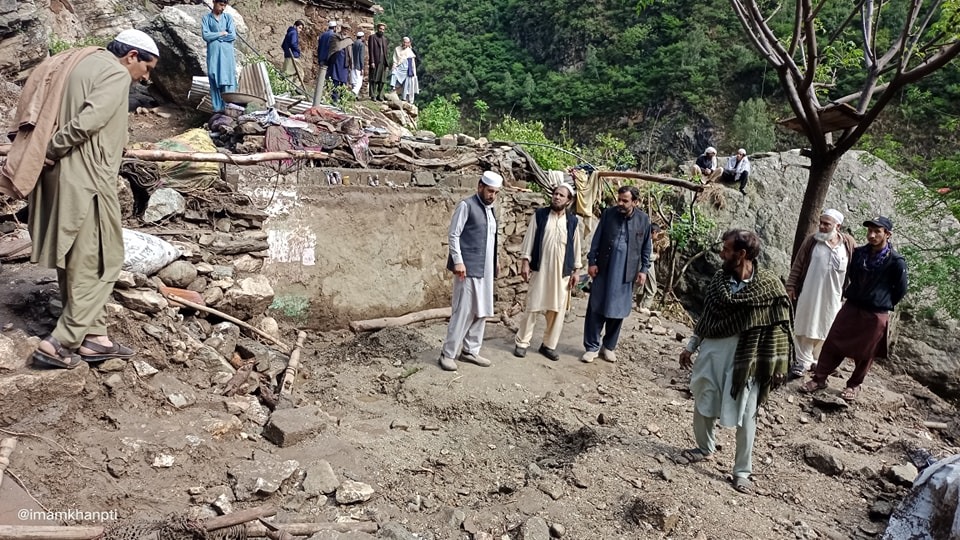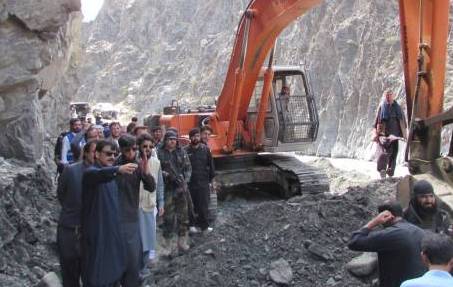By Fatima Umar
What compelled me to share this story? I’ve had the misfortune of witnessing paradise succumb to devastation. My native village, Guligram, was once a breathtaking haven of natural splendor. Now, it stands as a poignant reminder of the ravages of climate change, a harsh reality that has left an indelible mark on our landscape.
Guligram, located in the lush valley of Swat, has an ancient and fascinating history and It has been inhabited for thousands of years, once serving as a center of Buddhism, with remnants of that era still visible in the surrounding mountains.
During the Mughal period, Islam spread in the region, and the locals embraced it. After independence, Guligram became part of Pakistan. The village has long been known for its breathtaking landscapes, historical significance, and warm hospitality. However, today, it stands at the mercy of an environmental crisis.
In 2013, Guligram was a green valley with flowing rivers, towering trees, and swaying crops in the fields. But today? Everything has changed over the past decade. The land has become barren, the rivers are drying up, the mountains have lost their green cover, and the air feels suffocating.
“This is the same Guligram where I spent my life, but today, I can barely recognize it,” laments 54-year-old Umar Bacha, a resident of the village. “Rainfall has decreased, temperatures have risen, and the winter snow—once the pride of our mountains—is now a r’re sight.”
But this is not just a story of environmental degradation; it is a human tragedy. ”People across the village are suffering from respiratory diseases. Flu, asthma, and persistent coughs have become common,” says Umar Bacha, taking a deep breath. “Where is that fresh air that once made our mornings so refreshing? Now, we ask each other whether the air we breathe today is even safe.”
“I remember the days when our river water was crystal clear,” he recalls. “Children played by the riverside, people performed ablution with the flowing water, and women fetched clean water for their homes. But now? The river is murky, garbage floats on the surface, and we have to travel miles just to find clean drinking water.”
This is not just Umar Bacha’s story; it is the story of the entire village. My friend Zainab often shares her despair with me, asking, ”Fatima, will our village ever be the same again?” Her father is a farmer, struggling with water shortages and failing crops. “My father works tirelessly day and night, but the land no longer yields the harvest it once did. Hunger is looming over us all,” she says. There is fear in her eyes—a silent dread that we may have lost our paradise forever.
Jawaad, a 28-year-old villager, has also witnessed the devastating effects of climate change firsthand. ”We never imagined that nature would take such a harsh revenge,” he says regretfully. “As children, we played by the river, wandered in the forests, and enjoyed the monsoon rains. But now? The heat is unbearable, the trees are disappearing, and water scarcity has made life difficult.” With a heavy heart, he adds, “We were careless. We cut down trees, littered recklessly, and now we are paying the price. If we don’t act now, there will be nothing left for future generations.”
Climate change is not a distant threat—it is a ‘resent reality, and villages like Guligram are paying the highest price. The people here are deeply connected to their land, yet they are forced to watch it wither away helplessly.
“We must not remain silent,” says Umar Bacha with determination. “We are not just victims; we can be the agents of change. If the government and the people work together, we can save our village, our country, and our planet.”
This is not just the story of Guligram; it is the story of every village caught in the grip of climate change. It is time to wake up, to listen to the cries of our land, and to take action to protect it. Because if we fail to act today, how many more Guligrams will we lose tomorrow?
Also read; Swat River and Right of Resistance
Author is a freelance journalist based in district Swat. She writes about education, social issues, and culture.






Well up to down written upto to the mark